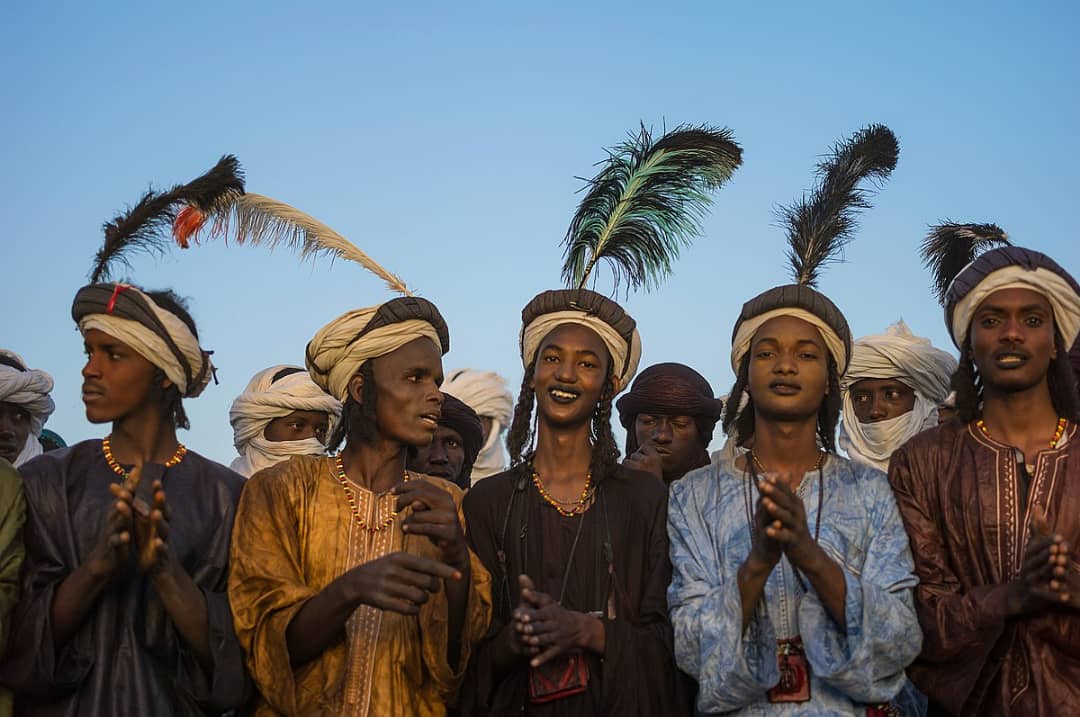The Fulani People.
The Fulani people, also known as the Fula or Fulbe, are an ethnic group spread across several countries in West and Central Africa.
They are known for their pastoralist lifestyle, which revolves around herding cattle, sheep, and goats. The Fulani are traditionally nomadic or semi-nomadic, moving with their herds in search of grazing land and water.
These people are linguistically diverse, with various dialects and languages belonging to the Niger-Congo language family. Their culture is rich and varied, with distinct clothing, jewelry, music, and oral traditions. Many Fulani communities are organized around a hierarchical social structure, with cattle ownership often determining one’s status.
While historically focused on livestock, many Fulani people have also engaged in trade, farming, and other occupations. Over time, factors such as urbanization, modernization, and changing land use patterns have led to some Fulani groups settling in towns and cities.
It’s important to note that the Fulani population spans across different countries, including Nigeria, Mali, Senegal, Guinea, Niger, Cameroon, and more. Due to this dispersion, there is a range of cultural variations among Fulani communities.
The Fulani culture is rich and diverse, reflecting their history as nomadic pastoralists and their widespread distribution across West and Central Africa. Here are some highlights of their culture:
- Nomadism and Pastoralism: The core of traditional Fulani culture revolves around cattle herding. Cattle are not just livestock; they are a symbol of wealth, status, and cultural identity. Fulani herders are known for their deep knowledge of the land and the seasonal migrations (transhumance) to find pasture.
- Housing: Traditionally, the Fulani who maintained a nomadic lifestyle lived in temporary huts known as “sukalus.” These are easily assembled and disassembled, suiting their mobile lifestyle.
- Dress: Fulani attire is often distinctive. Women wear long flowing robes with matching headscarves and are known for their elaborate jewelry, including large golden earrings called “kwottenai kanye.” Men often wear large hats with intricate embroidery and carry walking sticks.
- Tattoos and Scarification: Both Fulani men and women may have facial tattoos and scarifications, which are considered marks of beauty and identity.
- Music and Dance: Fulani music often revolves around the themes of love, cattle, and pastoral life. They play instruments like the “hoddu” (a type of lute) and the “rity” (a fiddle). Traditional dances, such as the “Yaalali” and “Bolojo,” are performed during social gatherings and ceremonies.
- Social Structure: Fulani society is hierarchically structured. At the top are the “Fulbe Woɗaaɓe” (nobles), who are cattle owners and herders. Below them are the artisanal and servile classes.
- Language: The Fulani speak Fula (or Fulfulde/Pulaar, depending on the region), which belongs to the Niger-Congo language family. There are various dialects due to their wide geographical spread.
- Religion: The majority of the Fulani are Sunni Muslims. They have been instrumental in the spread of Islam across West Africa, especially during the jihad states’ establishment in the 19th century.
- Festivals: Like other Muslim communities, the Fulani celebrate Islamic festivals like Eid al-Fitr and Eid al-Adha. They also have ceremonies related to pastoral life, like the “gerewol,” a male beauty contest and courtship ritual among the Wodaabe subgroup.
- Craftsmanship: Fulani are known for their craftsmanship, particularly in leatherwork, weaving, and metalwork (especially in making jewelry).
Given their vast dispersion across Africa, it’s essential to understand that these cultural practices might vary among different Fulani groups. However, these highlights provide an insight into the shared and celebrated aspects of their culture.
Source :His Majesty King Bashir Abdulsalam [Toro Of Bade) and Chairman AIDO Yumbe state, Nigeria.
Namale Agnes.
AIDO Sectariat.
Email: info@aidonetwork.org
Web: www.aidonetwork.org

